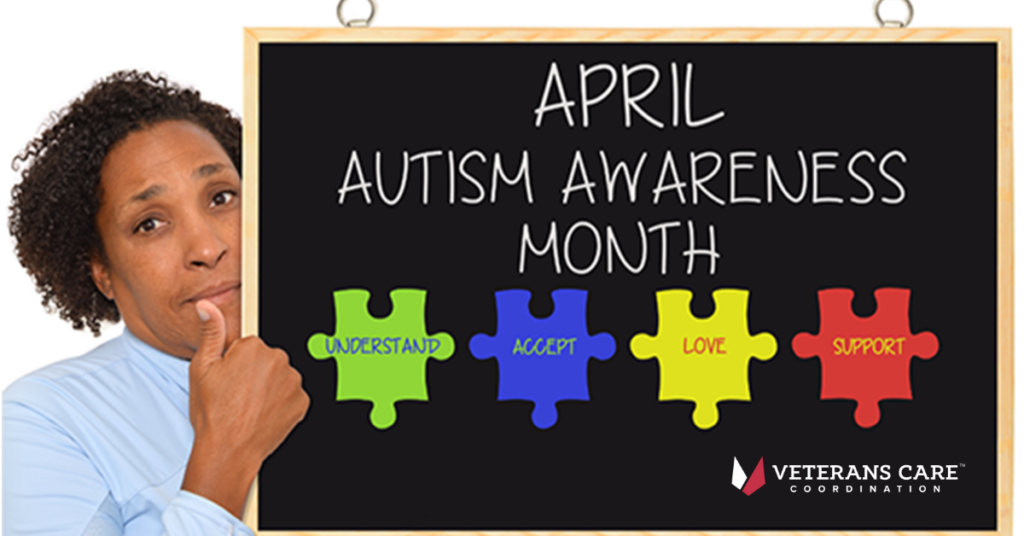Understanding & Caring for Adults with Autism

World Autism Day was April 2nd, and you may have seen someone wearing blue to help raise awareness for Autism. You may even know someone whose child has been diagnosed with Autism. But have you met or cared for a senior citizen with Autism? Research for this disease typically focuses on children. While most people will associate Autism with a child, Autism Spectrum Disorder or ASD is usually a lifelong condition. Some improvements have been achieved with early detection, but most older adults have gone undiagnosed their entire lives.
ASD is not gender or racially specific, and it can occur in any socioeconomic group, according to the CDC. The three main areas for Autism are social interactions, verbal or nonverbal communications, and repetitive behaviors. These symptom areas can range from mild to extreme. The extreme range in the severity of symptoms can often contribute to being misdiagnosed. It doesn’t matter where you fall on the spectrum; the symptoms of Autism will impact everyday life.
Some common symptoms adults with Autism may exhibit include:
- Difficulty interpreting social cues.
- Trouble maintaining a conversation.
- Difficulty regulating their emotions.
- Repetitive behaviors
- Strict daily routines with outbursts occurring with changes in routine.
- Hyperfocus on a hobby or particular interest.
- Trouble with relationships or making personal connections.
- Difficulty holding a job.
- Difficulty understanding others emotions.
- Literal interpretation of language
While individuals with ASD can struggle with these symptoms, almost half of the individuals diagnosed with ASD have shown above-average intelligence or can illustrate incredible talent in mathematics, art, music, and visual skills.
There is no known cure for ASD, but with treatment, it can be managed. Understanding how to care for an adult with ASD can help establish the best environment for everyone. Always remember patience and compassion are especially needed to care for individuals with ASD. The tips given in the Applied Behavior Analysis programs guide for working with adults with Autism are:
- Don’t force communication.
- Respect their desire for personal space.
- Stay calm.
- Be prepared.
- Keep things consistent.
The challenges of aging can be stressful for families in general. Still, for an older adult who has gone undiagnosed, the challenges can be even harder. With very little research being done for adults over the age of 65, families caring for a parent or sibling may struggle to find proper care and resources. Changes in daily routines by losing a loved one as a caregiver can create a decline in the mental and physical wellbeing of someone with ASD. As an agency, if you are working with someone who may have these symptoms, understanding their behaviors can help navigate caregiving. Agencies should prepare by providing additional training to caregivers to recognize the symptoms of ASD. Understanding the symptoms can help your agency administer the best possible care. If your agency serves adults with ASD you can find tips and resources in the Healthcare Toolkit on www.autismandhealth.org
Sources:
https://www.additudemag.com/autism-spectrum-disorder-in-adults/
https://www.autismandhealth.org/?a=pv&p=main&t=pv_fac&s=fac_fac&theme=ltlc&size=small
https://www.appliedbehavioranalysisprograms.com/lists/5-tips-working-adults-autism-spectrum/
